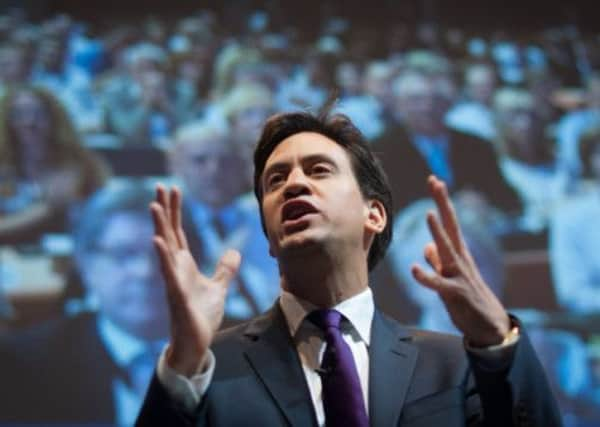Bernard Ingham: Only power left to destructive unions is their grip on Labour’s purse strings


Of course, not all union leaders and Labour politicians have been at odds – at least not all the time. We must also recognise that all political parties are unstable in the sense that they are boiling cauldrons of ambition and ideas – some boiling with more ideas than others.
But the natural relationship between the unions and the Labour Party seems to be fraught with argument conducted uninhibitedly in public. For that, at least, we should perhaps be grateful. They are not very good at covering things up.
Advertisement
Hide AdAdvertisement
Hide AdIn my early days as a newspaper labour correspondent, the tension used to matter. The unions were able to dictate policy to either the government or HM Loyal Opposition of the day.
Whether Labour’s leaders took any notice was another matter, but their failure to do so would lead to more beer and sandwiches, more smoke-filled rooms and more war reporting.
For the last 25 years union conferences have attracted minimal attention. My old craft – that of the labour correspondent – is virtually extinct.
Arthur Scargill’s abject defeat in his attempt to use the National Union of Mineworkers to get rid of an elected government rendered them of little account. Why should we ever take a blind bit of notice of those insurrectionists?
Advertisement
Hide AdAdvertisement
Hide AdToday, as the 145th Trades Union Congress winds up in Bournemouth, nobody is hanging on the unions’ words on any aspect of national policy. Indeed, it seems that all they have to offer is strikes.
Next month the two main teaching unions are to stage that modern exercise in futility – the one day strike, apparently oblivious to the fact that their performance in state education is nowt to write home about. Dave Prentis, of Unison, forecasts the biggest wave of industrial action for a generation.
And with mind-blowing vacancy, Frances O’Grady, the new general secretary of the TUC, suggests that the economic recovery will lead to more strikes as workers demand better pay rises – as, indeed, it will if they wish to damage the recovery.
It seems the unions have learned nothing from the 20th Century.
Advertisement
Hide AdAdvertisement
Hide AdInstead, the real interest in this year’s TUC is not what good or ill the unions can do for the nation but what more trouble is likely to befall Ed Miliband for trying to base the funding of his party on individual opted-in affiliation by union members instead of automatic membership through their union.
This has had a superficially menacing start with the GMB and Unison withholding about £1.2m from the party.
However, I smell a rat. It may well be that the likes of Bob Crow of the Rail, Maritime and Transport Workers union, wants to set up a new workers’ party shorn of all Blairite taint.
This would probably last no longer than a single general election since anybody who voted for a Crow agenda would be seen to be certifiable.
So, where else have the unions to go?
Advertisement
Hide AdAdvertisement
Hide AdNo other party would accommodate them with the possible exception of the incomparably silly Green Party. Is it likely that, for all their negative impulses, they will bankrupt Labour?
Where else would they put their money? Into capitalist businesses?
This brings us back to Ed Miliband and the eternal question in the union/Labour party equation: what will be the price of Labour’s union-financed solvency?
Will Miliband’s presentational bid for respectability in his party’s financing actually put him more than ever under the thumb of the union barons?
Advertisement
Hide AdAdvertisement
Hide AdI suspect I know the answer. The unions realise they have long exercised little influence in companies, the workplace or the corridors of power. If they had done so, Britain would have been a complete basket case decades ago. Their forte is wrecking an economy.
So, they settle for a semblance of power through the Labour Party, which tries to do good in spite of them.
Labour recognises the price of union funding is filtering out or mitigating their nonsense. That is the only way to win an election.
But it is becoming ever more difficult to persuade the voters because of the innately destructive nature of the union movement.
In fact, the unions are a millstone round Labour’s neck but, so long as they have the brass, an indispensable one.
That is Labour’s – and our – misfortune.